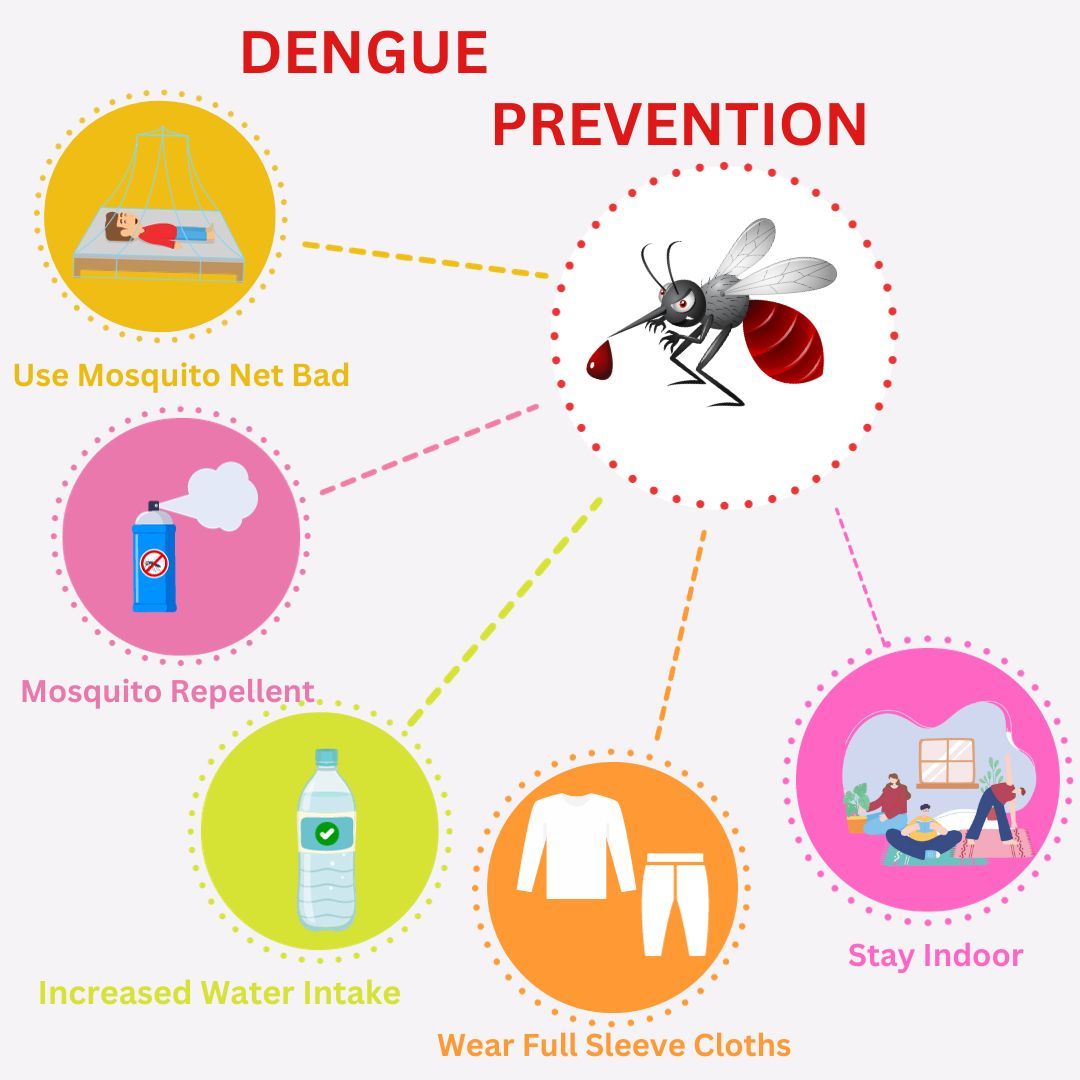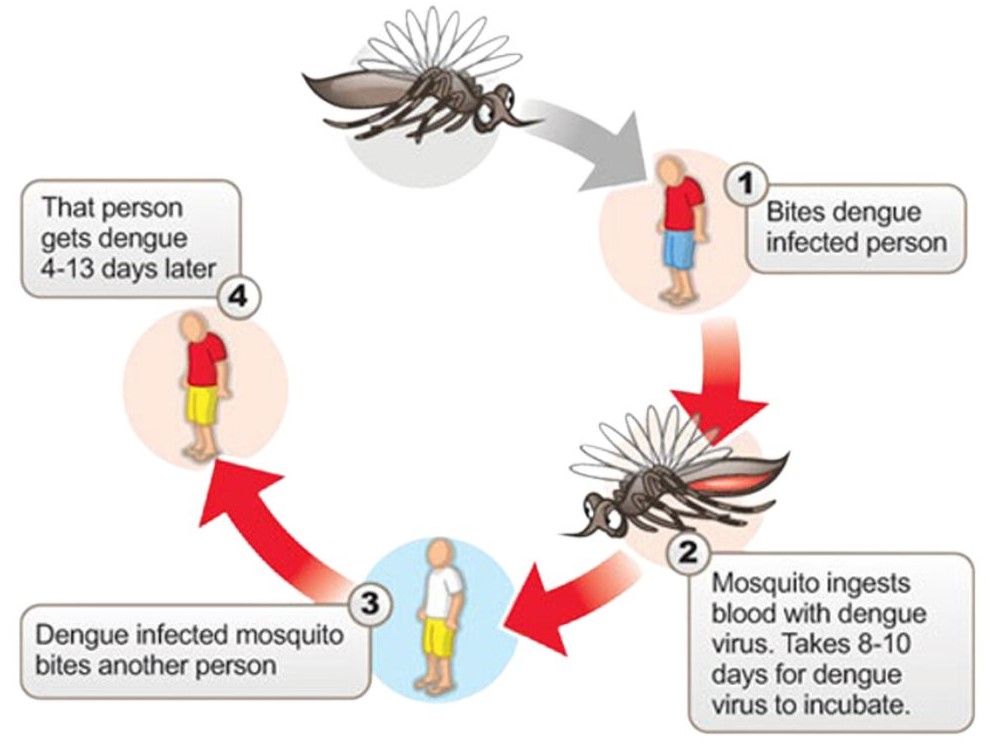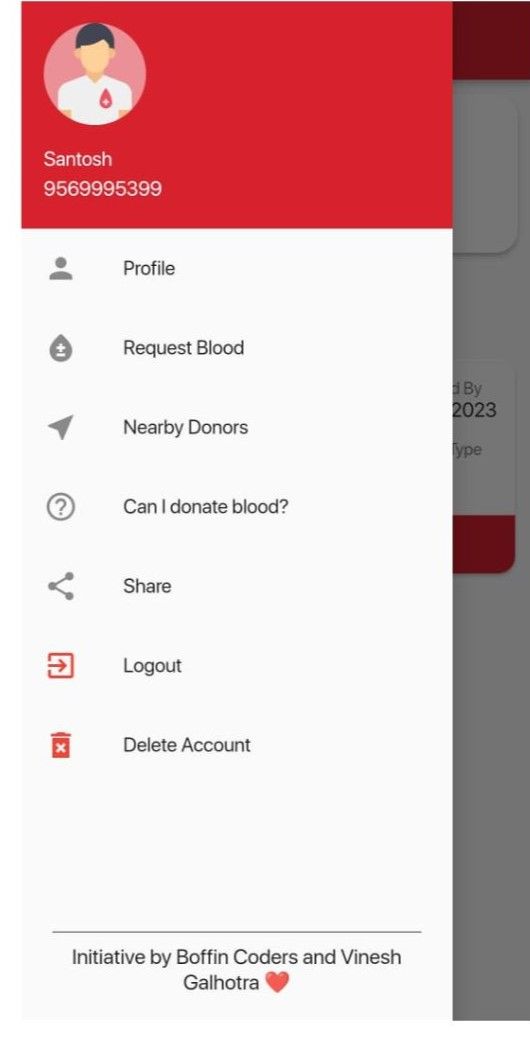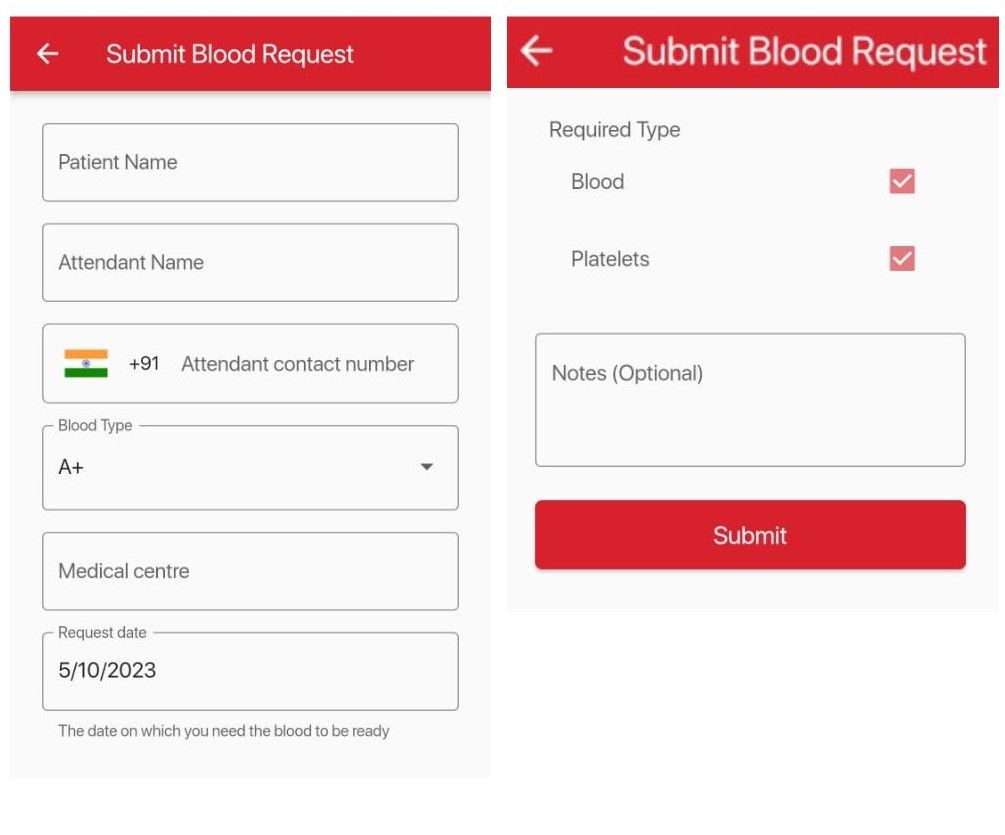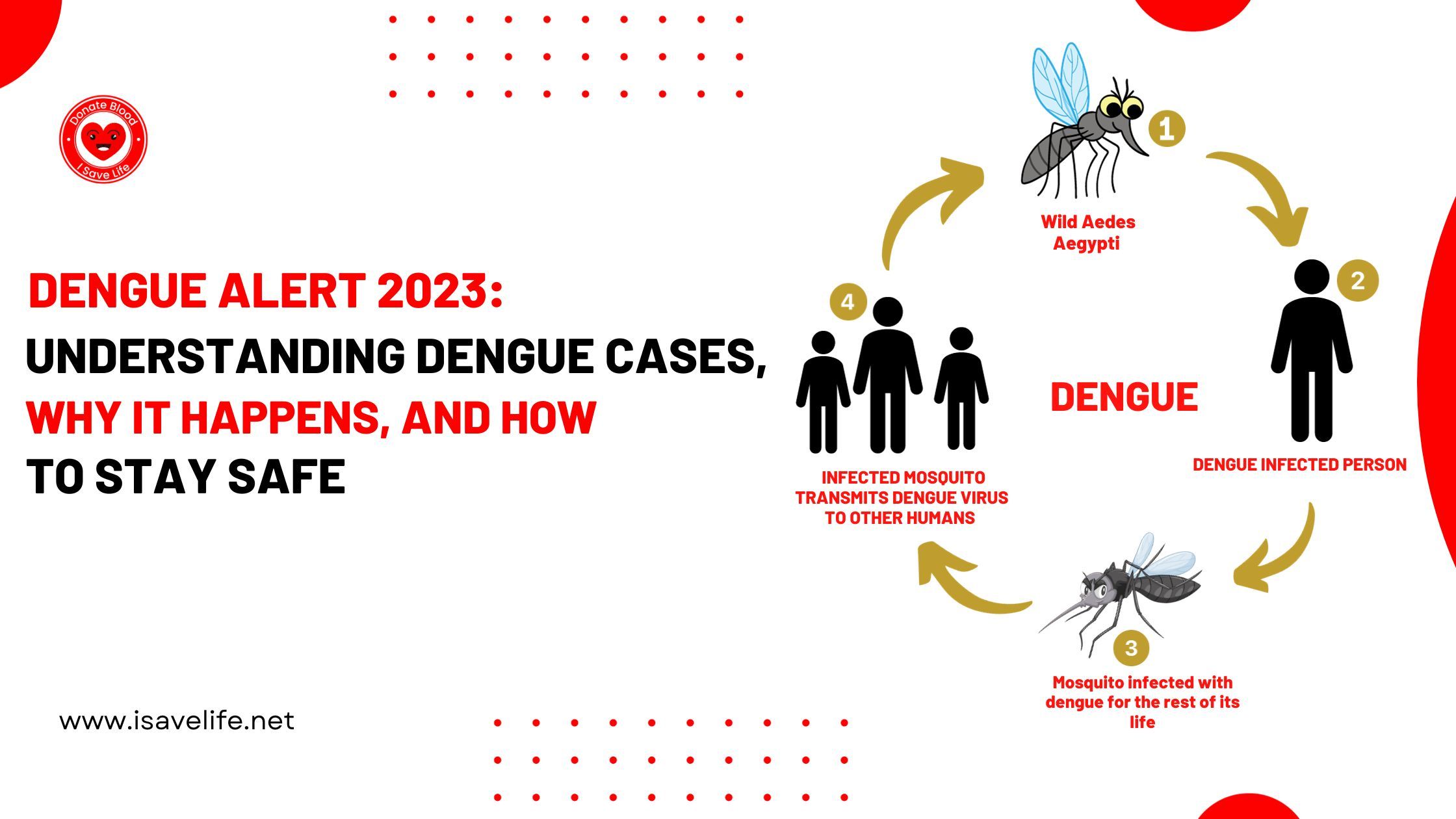
Dengue Alert 2023: Understanding Dengue Cases, Why it Happens, and How to Stay Safe
13-Oct-2023
Dengue Alert 2023: Understanding Dengue Cases, Why it Happens, and How to Stay Safe
India has been dealing with a rise in dengue cases over the past two months as of September 2023. Dengue fever, a mosquito-borne viral infection, has been a recurring public health challenge in the country, and the situation in September 2023 has raised concerns among health authorities and the general population.
Dengue cases in India has been increasing in September 2023, compared to the previous two months. The estimated number of cases in September 2023 is 6,000, which is a 30% increase from the number of cases in August 2023.
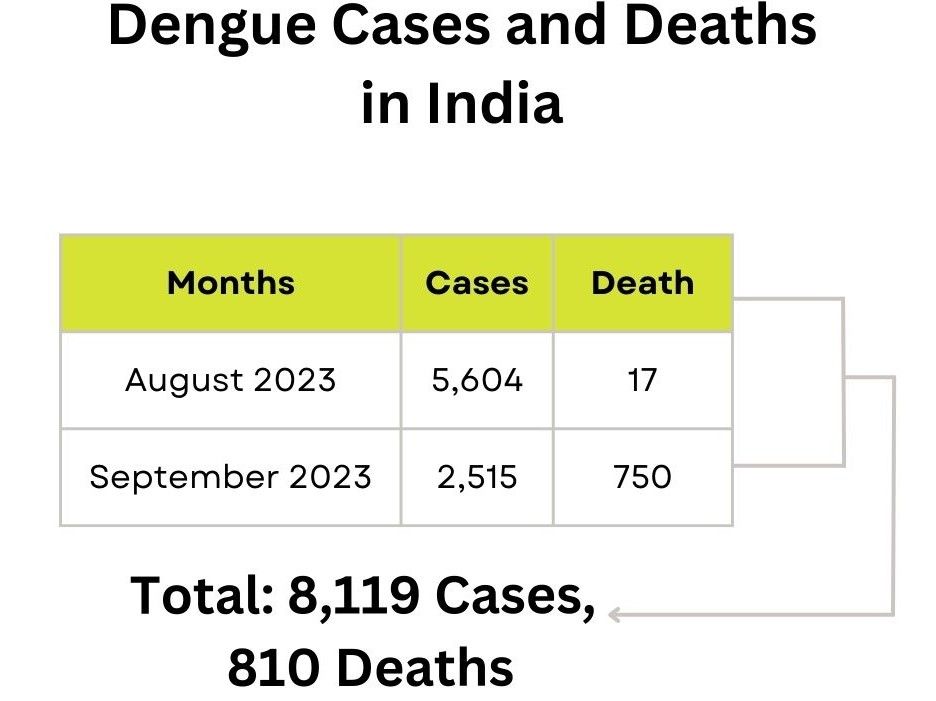
Reasons for the increase in dengue cases:
The main climate factors that affect the spread of dengue are temperature, increased rainfall, and high humidity. This is why dengue cases peak in August and September.
How Does it Spread:
Dengue Symptoms:
Dengue symptoms usually last for 2-7 days. Most people get better within a week.
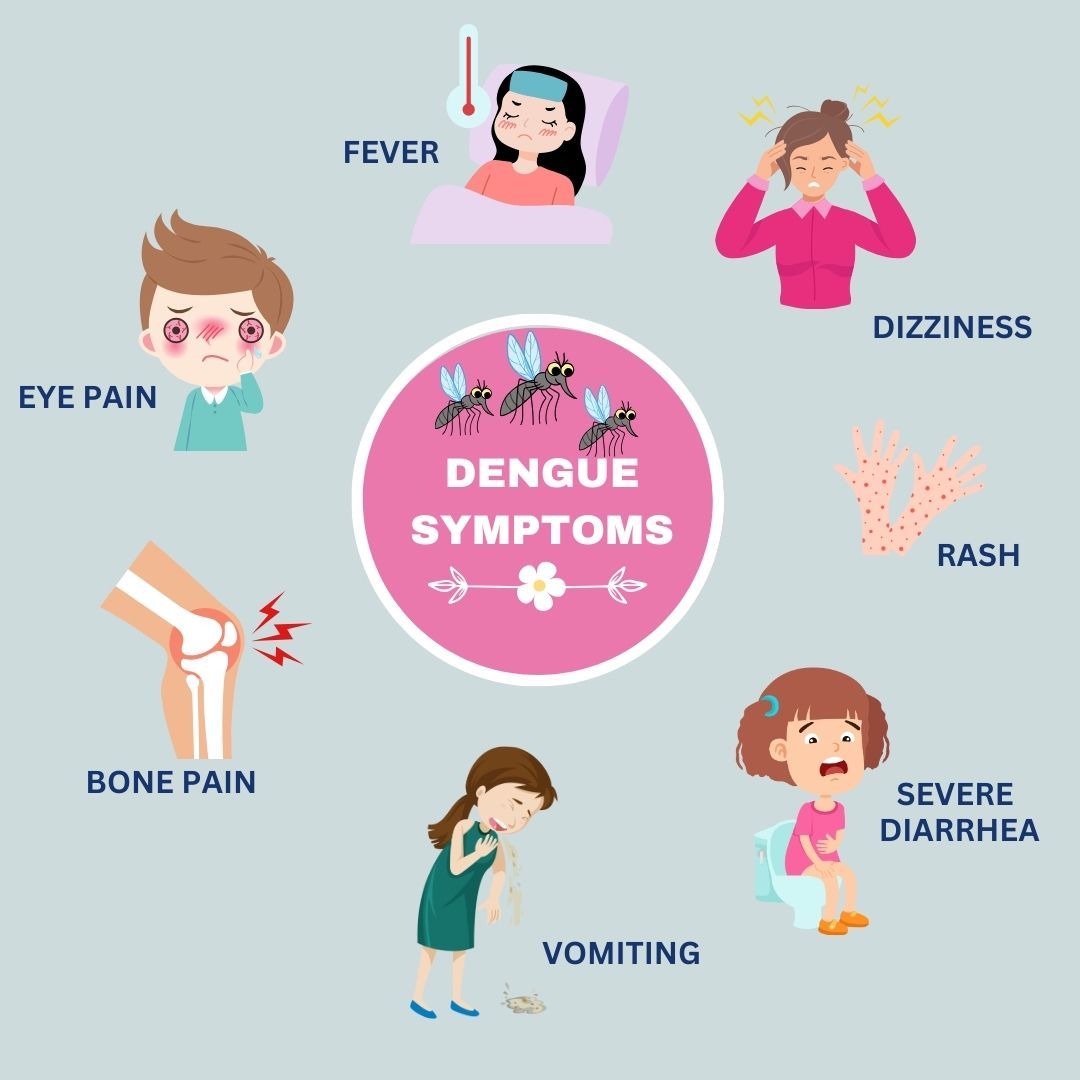
Dengue Cases, Deaths, And case Fatality rate in India for 2021, 2022, and 2023
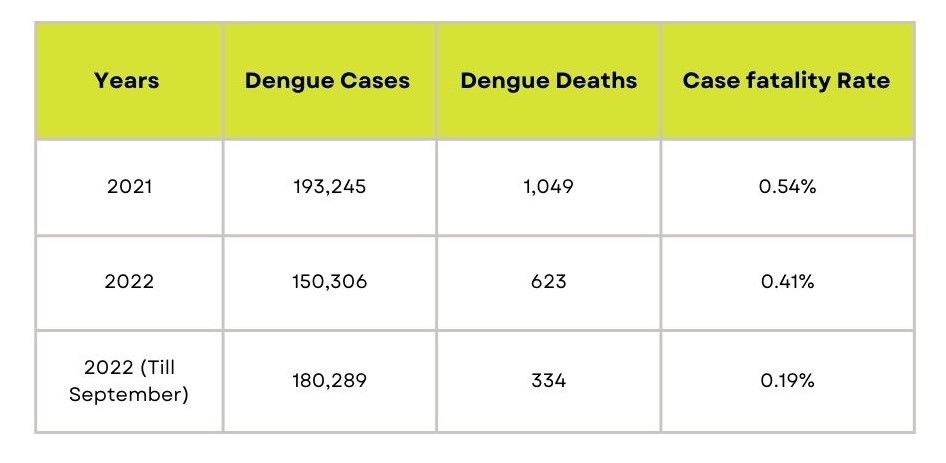
The National Center for Vector Borne Diseases Control (NCVBDC), which is updated regularly. The actual number of cases, deaths, and case fatality rate may be higher or lower than these numbers.
The case fatality rate is the percentage of people who die from a disease out of all the people who have the disease. In the case of dengue, the case fatality rate is typically around 1%. However, it can be higher in certain groups of people, such as young children and people with underlying medical conditions.
Dengue fever is a viral infection that is transmitted by mosquitoes. It is a common disease in many tropical and subtropical countries. The symptoms of dengue fever typically include fever, headache, muscle and joint pain, rash, and bleeding gums. The symptoms usually last for 2-7 days, but they can be more severe in some cases.
Platelets requirements to cure dengue:
The platelet requirement to cure dengue depends on the severity of the patient's condition. Patients with mild dengue fever may not require any platelet transfusions. However, patients with more severe dengue fever, such as dengue hemorrhagic fever or dengue shock syndrome, may require platelet transfusions to prevent or treat bleeding complications.
The typical platelet count for a healthy adult is between 150,000 and 450,000 platelets per microliter of blood. Patients with dengue fever may have platelet counts as low as 20,000 platelets per microliter of blood.
A platelet transfusion is typically recommended for patients with dengue fever who have a platelet count below 10,000 platelets per microliter of blood, or for patients who are bleeding or at risk of bleeding. The number of platelet units required for a transfusion will vary depending on the patient's individual needs.
Platelet transfusions can be life-saving for patients with dengue fever who are experiencing severe bleeding complications. However, it is important to note that platelet transfusions are not a cure for dengue fever. Dengue fever is a viral infection, and there is no specific treatment for the virus. Treatment for dengue fever focuses on managing the symptoms and preventing complications.
Blood has a short shelf life: Red blood cells can only be stored for 42 days, platelets can only be stored for 5 days, and plasma can only be stored for 1 year. This means that there is a constant need for new blood donations to ensure that there is a sufficient supply of blood available for patients who need it.
Some medical conditions require immediate blood transfusions: Patients with certain medical conditions, such as leukaemia, cancer, and sickle cell disease, may need blood transfusions on a regular basis. If these patients do not receive blood transfusions when they need them, they could experience serious complications or even die.
Emergency situations: In emergency situations, such as car accidents and mass shootings, there is often a high demand for blood transfusions. If there is not enough blood available, patients may have to wait for transfusions, which could delay their treatment and worsen their outcomes.
Here are some specific examples of cases where donors are required immediately:
A patient has been in a car accident and has lost a lot of blood. They need a blood transfusion immediately to stop the bleeding and save their life.
A patient has leukemia and needs regular blood transfusions to boost their blood cell count. If they do not receive a blood transfusion when they need it, they could develop serious complications or even die.
There is a mass shooting and there are many patients who need blood transfusions. If there is not enough blood available, patients may have to wait for transfusions, which could delay their treatment and worsen their outcomes.
ISave Life is a mobile app that helps to save lives by making it easier for people to donate blood. Blood is a vital resource that is needed to treat a variety of medical conditions, including accidents, surgeries, and chronic diseases. However, there is often a shortage of blood donations.
The ISave Life app helps to increase the number of blood donations by making it easier for people to find blood donation centers, book appointments, and learn about the importance of blood donation. The app also has a feature that allows users to request blood donations for specific people or hospitals.
Feature of form filling and request will be sent to donors:
To use the form-filling and request feature, users simply need to tap on the “Request Blood” Button in the app.
They will then be prompted to fill out a form with the following information:
Patient name
Attendant Name
Phone No.
Blood type
Medical Centre
Request Date
Request Type
1. Blood
2. Platelets
Notes (Optional)
Once the form is submitted, the app will send a request to all blood donors in the area. Donors who are eligible to donate will receive a notification and can choose to donate blood to the patient.
Precautions of Dengue
Dengue is a viral infection spread by the bite of an infected Aedes mosquito. It is a serious illness that can be fatal, but it is often treatable if diagnosed early. There is no vaccine or specific treatment for dengue, so the best way to protect yourself is to take precautions to avoid mosquito bites.
Key Precautions to Guard Against Dengue Infection:
Use mosquito repellent: When outdoors, use a mosquito repellent that contains DEET, and picaridin. Apply the repellent to all exposed skin, even under clothing. Reapply every two hours, or more often if you are sweating or swimming.
Wear long sleeves and pants: This will help protect your skin from mosquito bites.
Use mosquito nets: If you are sleeping in an area where mosquitoes are present, use a mosquito net over your bed.
Eliminate mosquito breeding grounds: Mosquitoes breed in stagnant water, so empty any standing water from containers around your home, such as birdbaths, flower pots, and pet bowls.
